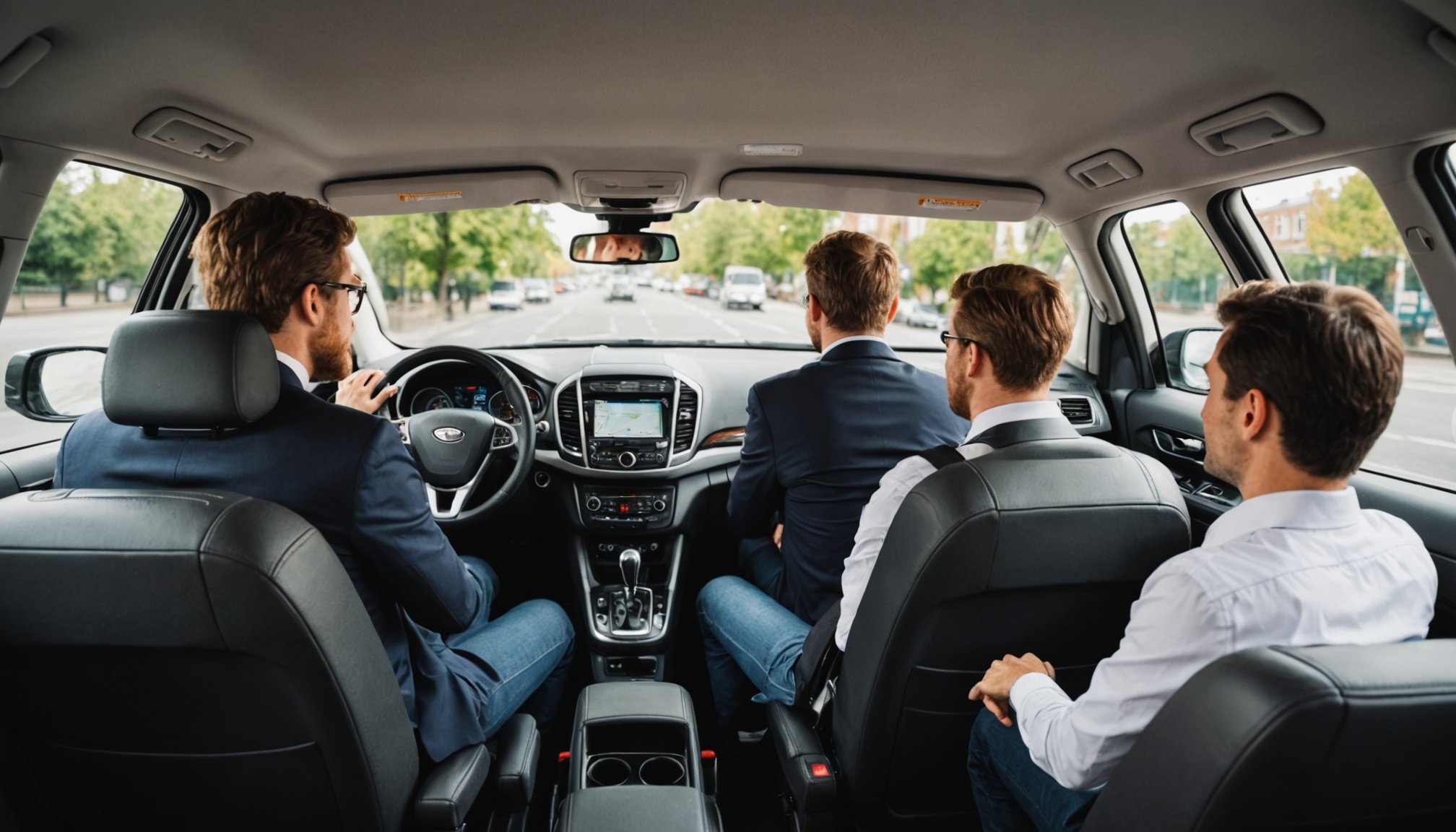As urban landscapes evolve, the dynamics of transportation are shifting dramatically. With the rise of carpooling and ride-sharing services, we witness a redefinition of traditional vehicle ownership. For many individuals and households, the convenience and affordability of these shared mobility options are challenging the long-standing notion of owning a car. In this article, we delve into how these services are influencing vehicle ownership trends in the UK, highlighting key variables that affect people’s decisions about mobility.
Understanding Carpooling and Ride-Sharing
The concepts of carpooling and ride-sharing have gained traction in recent years, reflecting a growing trend towards collaborative transportation. Carpooling typically involves a group of people sharing a private vehicle to travel together, often to work or school. On the other hand, ride-sharing refers to services like Uber and Lyft, where individuals request a ride through an app and share the cost with others or pay for a direct trip.
In parallel : What are the top 5 emerging vehicle technologies that could change the UK automotive market?
These services are revolutionizing how people think about transportation. They provide a flexible alternative to traditional car ownership, allowing users to access vehicles on demand without the associated costs of maintenance, insurance, and parking. This shift is particularly significant in densely populated urban areas, where owning a car can be more of a burden than a convenience.
Research shows that ride-sharing services have expanded mobility options for many, especially those who might not have access to a private vehicle. This change is especially noticeable among young individuals who prioritize experiences over possessions. For them, the ease of booking a ride or sharing a trip with others often outweighs the need for a vehicle of their own.
In parallel : How should UK residents choose the right insurance coverage for their vehicle?
In essence, as more people embrace shared mobility, we can observe a nuanced understanding of transportation needs. Companies offering these services continue to innovate, integrating technology to enhance user experience and accessibility. These advancements are also influencing market demand for vehicles, as the need for personal ownership diminishes among a segment of the population.
The Economic Impact of Shared Mobility Services
The economic ramifications of carpooling and ride-sharing services are profound. These models not only redefine how we commute but also reshape the broader transportation market. By decreasing reliance on personal vehicles, these services can potentially lead to a decline in car sales.
Individuals who once felt compelled to buy a car now see alternatives that are often cheaper and more convenient. For many, the upfront costs of acquiring a new vehicle, coupled with ongoing expenses like insurance and maintenance, can be daunting. The affordability of shared services paves the way for reduced financial strain, encouraging more people to utilize these options rather than invest in a personal vehicle.
Moreover, the rise of shared mobility has implications for urban planning and infrastructure. Cities can benefit from decreased congestion and pollution as fewer cars take to the streets. This shift can lead to improved air quality and more sustainable urban environments, aligning with broader objectives of reducing carbon footprints.
Market studies indicate that as shared mobility gains ground, traditional auto manufacturers face new challenges. They must adapt to a changing landscape where consumer preferences shift towards access rather than ownership. This trend compels manufacturers to explore partnerships with ride-sharing companies, potentially leading to innovations in vehicle design tailored for shared use.
Ultimately, the economic impact of these services extends beyond individual households, influencing industries and urban development as a whole. The balance of power in the market is shifting, presenting both challenges and opportunities for all stakeholders involved.
Demographic Influences on Vehicle Ownership
Demographics play a crucial role in understanding the trends of vehicle ownership in the context of carpooling and ride-sharing. Different age groups, income levels, and geographic locations exhibit varying preferences for mobility solutions. Young individuals, particularly those in urban environments, are more inclined to utilize shared services instead of pursuing traditional vehicle ownership.
The millennial generation, now the largest demographic group, often prioritizes experiences over possessions. Many in this age group find that the flexibility of ride-sharing and carpooling aligns with their lifestyle choices. They are more likely to live in urban areas where owning a car can be impractical due to limited parking and high costs. This shift in mindset reflects a broader societal trend towards minimalism and sustainability.
Furthermore, income levels significantly influence vehicle ownership decisions. Individuals from middle and lower-income brackets frequently find shared mobility services to be more financially viable than maintaining a personal vehicle. This affordability aspect is vital, as ride-sharing offers a means of transportation without the financial burden of monthly car payments.
Geographic considerations also come into play. In urban settings with robust public transportation systems, the reliance on personal vehicles diminishes. In contrast, residents in suburban or rural areas may still depend on vehicles for daily commutes. However, even in these regions, the increasing availability of shared services is prompting a reconsideration of transportation habits, leading to shifts in traditional ownership models.
In summary, demographic factors significantly shape the landscape of vehicle ownership and usage. As more demographics embrace shared mobility, we can expect continued changes in how transportation is perceived and utilized across the UK.
The Environmental Benefits of Reduced Vehicle Ownership
The environmental benefits associated with the decline in traditional vehicle ownership due to carpooling and ride-sharing are significant. With fewer vehicles on the road, cities can experience reduced traffic congestion and lower greenhouse gas emissions. This shift towards more sustainable transportation methods aligns with global efforts to combat climate change and promote responsible consumption.
Studies have shown that carpooling can reduce the number of cars on the road, leading to fewer emissions per traveler. When multiple individuals share a ride, the cumulative environmental impact is significantly less harmful than if each were to drive individually. This collective effort can make a substantial difference in urban areas, where air quality is often compromised by high traffic levels.
Moreover, ride-sharing services are increasingly adopting electric and hybrid vehicles, further contributing to environmental sustainability. By encouraging the use of greener transportation options, these companies can help reduce the carbon footprint associated with traditional vehicle usage. As more users opt for shared services, the demand for sustainable vehicles will likely increase, prompting manufacturers to innovate and invest in eco-friendly options.
The move towards shared mobility also encourages urban planners to rethink transportation infrastructure. With fewer vehicles on the road, cities can incorporate more bike lanes, pedestrian pathways, and green spaces, enhancing overall community livability. This transformation fosters a healthier lifestyle for residents and reaffirms the importance of sustainable urban development.
In conclusion, the environmental implications of reduced vehicle ownership driven by carpooling and ride-sharing are profound. By embracing shared mobility, society can take significant steps toward a more sustainable future.
In conclusion, the rise of carpooling and ride-sharing services marks a pivotal moment in the transportation landscape of the UK. These services are reshaping how individuals approach vehicle ownership, leading to a decrease in personal car reliance for many. As we analyze the economic, demographic, and environmental impacts of these changes, it becomes clear that the shift towards shared mobility is more than just a trend—it represents a fundamental transformation in how we perceive and utilize transportation.
The implications of this shift extend beyond individual choices, influencing market dynamics, urban planning, and environmental sustainability. As more people embrace the convenience and affordability of shared services, we can expect continued evolution in the mobility landscape, paving the way for a future where vehicle ownership is no longer the norm but an option among diverse mobility solutions. This transformation offers promising prospects for a more sustainable and efficient urban environment, reflecting an essential step toward a smarter and more connected society.











